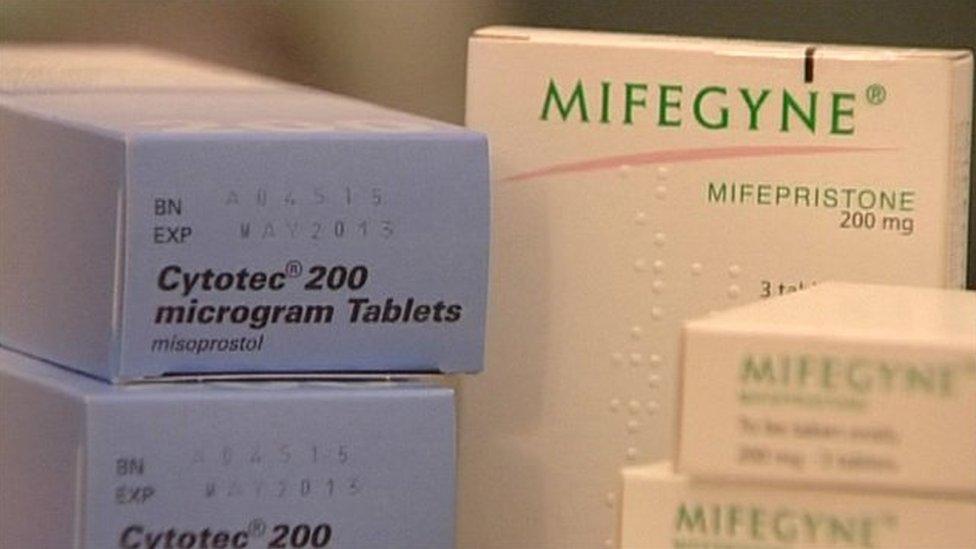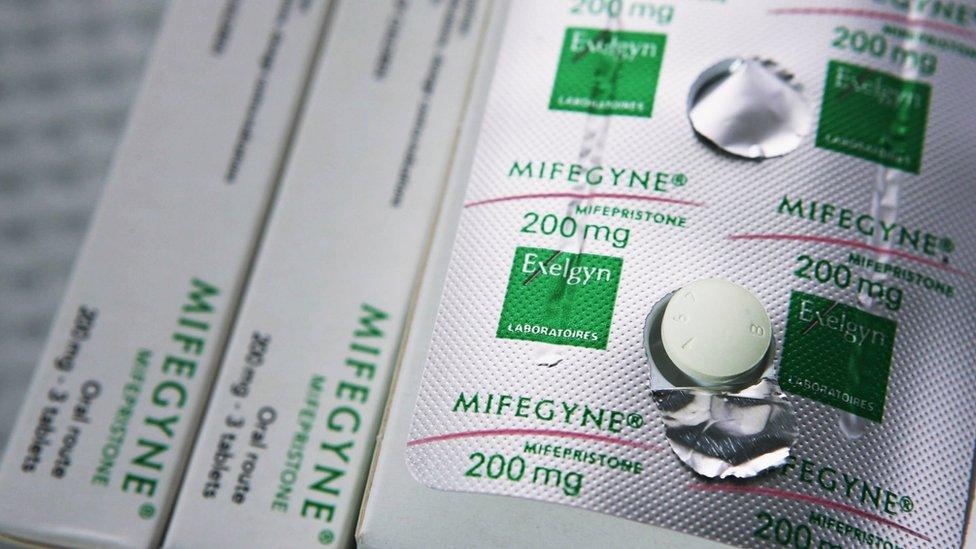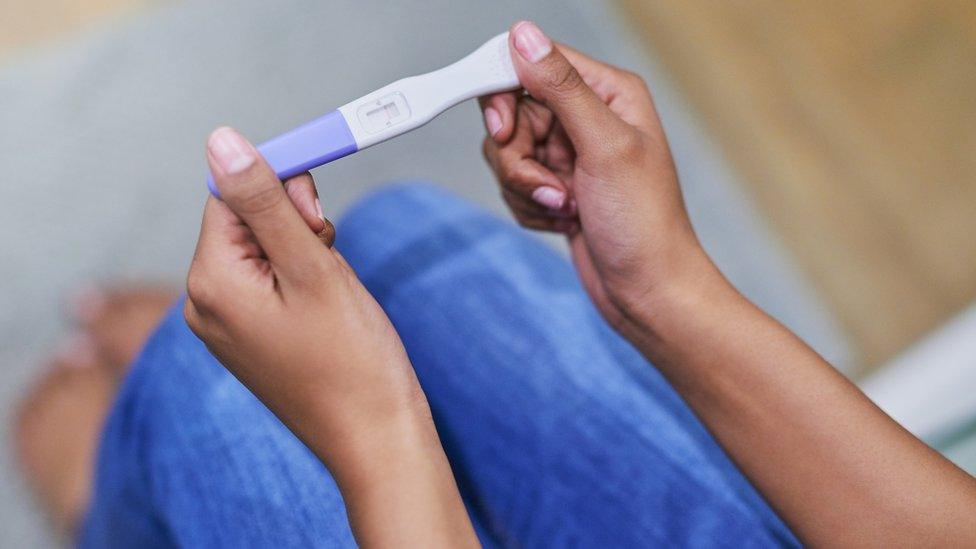Judges refuse appeal to challenge Scots abortion pill move
- Published

Misoprostol is sold under the brand name Cytotec among others
An anti-abortion group has lost its legal challenge against the Scottish government's decision to allow women to take abortion pills at home.
The Society for the Protection of Unborn Children (SPUC) argued allowing women to take misoprostol at home was unlawful and threatened their health.
It returned to the Court of Session to appeal in April after it lost its legal challenge against the move last year.
However, in a ruling published on Wednesday judges refused the appeal.
Following a Scottish government decision, women in Scotland can now take misoprostol at home, provided they have first taken the drug mifepristone in a clinic 24 to 48 hours beforehand.
During the hearing in Edinburgh in April Morag Ross QC, representing SPUC, said the decision to allow abortions at home is flawed in "two fundamental respects" because it approved treatment outwith the presence of a registered medical practitioner (RMP) and because a pregnant woman's home is not a "meaningful class of place".
The case was heard by Lord Justice Clerk Lady Dorrian, Lord Menzies and Lord Brodie.
In their ruling the judges said that an RMP remains responsible whether the treatment is administered in a clinic or at home.

What is a medical abortion?
Women in Scotland were the first in the UK to be allowed to take the abortion pill at home.
The change brought Scotland in line with other countries such as Sweden and France.
Early medical abortion, which can take place in the first 10 weeks of pregnancy, involves taking two different medicines.
The first tablet - called mifepristone - blocks the action of the hormone progesterone, which is needed to maintain the pregnancy.
The second tablet, called misoprostol, can be given on the same day, or 24, 48 or 72 hours apart.
Misoprostol is administered in a clinical setting but can be taken by women at home.
Within an hour of taking misoprostol women often experience heavy bleeding.

They said: "We do not accept that the doctor's control or supervision over the treatment differs in any material way between the situation of taking the tablet within the clinic and then leaving; and that of delaying the taking of the tablet to allow the woman to travel home.
"Both result in the termination of the pregnancy taking place outside of the clinic.
"In each case the RMP can properly be described as taking responsibility for the treatment of the termination of the pregnancy and control in the appropriate sense is maintained."

Mifepristone is taken before misoprostol, which can be taken at home
The court heard the Abortion Act of 1967 regulated abortion in key areas including that it be carried out by 24 weeks by a registered medical practitioner and it be carried out in an NHS hospital or another place approved by the Secretary of State.
On the issue of home as a class of place the judges said: "The reclaimer has been unable convincingly to explain why an outpatient clinic or GP's premises would necessarily be a 'safer' or more suitable place to take a tablet or pessary than the woman's home."
John Deighan, the chief executive of SPUC Scotland, said he was "greatly saddened" by the decision.
He added: "This decision may be the loss of one battle but justice and reason will continue to motivate us to continue our efforts."
A Scottish government spokesman said: "We welcome the Court of Session's decision, and are pleased it has again confirmed our approach to permitting women to take misoprostol in their own home in certain circumstances is lawful.
"It is right for women to be able to make this choice if it is their preference."
- Published15 August 2018

- Published17 December 2017

- Published26 October 2017
